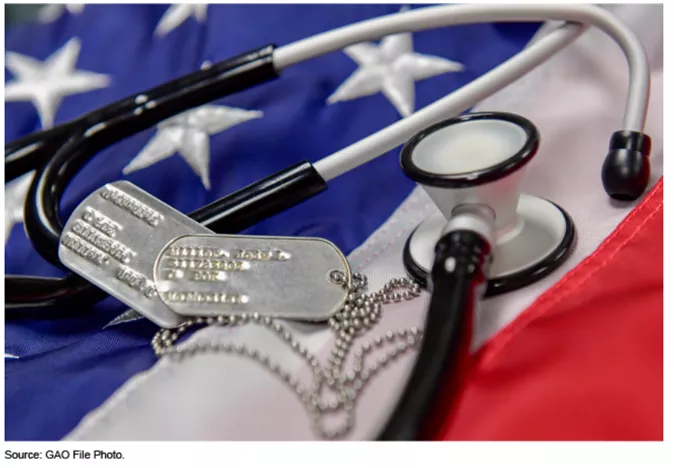GAO Highlights Problems in VA Community Care Program
Per the notice below, the United States Government Accountability Office (GAO) is highlighting problems it found with the United States Veterans Administration (VA) Community Care Program.
A Veterans’ Program Meant to Help Increase Access to Health Care May Struggle to Do So
Improving veterans’ access to health care is a top priority for the Department of Veterans Affairs, which started the Veterans Community Care Program in 2019 to do just that. The program allows veterans to make appointments with local health care providers when they can’t receive care from a VA facility or would have to travel too far for care. In recent years, the Veterans Community Care Program has grown rapidly, raising concerns about its oversight. And veterans have complained about long wait times and other delays when trying to schedule appointments through it. Today’s WatchBlog post looks at our recent work on these issues and plans to address them.

Wait times and delays getting mental health and other specialty care appointments
Even though veterans can receive care outside of the Veterans Health Administration (VHA) system, VHA still coordinates the appointments and makes referrals under the Community Care Program. But in our work, we found that veterans may face delays in scheduling certain appointments—like those for mental health and other specialty care.
Mental health care. The demand for mental health care has grown, including among veterans. The VA has struggled to meet this demand at its facilities and within the Community Care Program. In June, we sat down with GAO’s Alyssa Hundrup—an expert on veterans’ health care—to learn more about this issue and our report on it. Alyssa told us that there is a national shortage of mental health care providers, which has also affected veterans’ access. She said that in general, veterans are supposed to be able to have mental health appointments within 30 days. However, on average, it may take more than 14 days from the time a referral is made to even schedule an appointment through a Community Care. Listen to our interview with GAO’s Alyssa Hundrup below.
Specialty care. Specialty care include things like diagnostic testing, specialized treatments, and consultations with specialists such as cardiologists. Scheduling these appointments quickly may help with early detection and treatment of health conditions and symptoms. In 2023, we reported that veterans may wait longer for VHA facilities to schedule specialty care appointments through the Community Care Program. We found that VHA had set timeliness standards for scheduling these appointments. But it wasn’t analyzing available scheduling information to know whether VHA facilities that schedule these appointments were able to meet those time frames. We made several recommendations to improve VHA’s efforts and it has taken some action to address them. For example, VHA has analyzed information about the timeliness of appointments and established a goal for each VHA facility to reduce the number of days it takes to schedule appointments for specialty care. Learn more about its efforts in our report.
As the Community Care Program grows, VA should strengthen oversight
The Community Care Program provides health care to 2.8 million veterans—a number that has grown rapidly over the years. Contract spending on this program has also grown by 40% to meet this demand. This growth has added to the complexity of overseeing the program to ensure veterans are able to access the timely care they need.

But when we looked at how VA has responded to this growth, we found gaps that weakened its oversight of the contractors who connect veterans with community care. For example, in our new report out this month, we found that program staff don’t have clearly defined procedures, such as how to track and communicate problems about things like contractor performance and operational issues. This limits VA’s ability to respond to issues and solve them. We also found that VA eliminated its contract program manager position. This could ultimately reduce VA oversight of these large contracts and impact the quality of the care provided to veterans. VA is taking some steps to improve contractor oversight. But it does not have a formal process for documenting lessons learned. VA is currently preparing to award a new set of community care contracts. Without taking steps to address the issues above, VA risks continued contract oversight challenges. Learn more by reading our August report.

